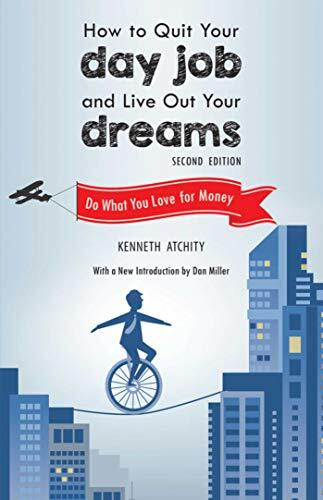Stealing Time for Your Dream in 2025 -- Part 5: How to Make "the clock of life" YOUR clock

How to make '"the clock of life" your clock:
The stopwatch
Mercury’s contemporary magic wand for taking command of yourtime is the stopwatch. Here’s how you use this magical wand:
You know the clock on the wall will keep ticking awayrelentlessly until the day has gone by. You even know how it keeps ticking at night--whyelse would you awaken at 5:59 on your digital bedside clock when you’ve set thealarm to go off at 6:00? You know the telephone seems wired to that damnedclock, life’s interruptions seem wired to it, the myriad distractions thatflesh is heir to seem wired to it--and you recognize that, as a result, youyourself and your dreams have been wired to the Accountant’s clock for way toolong. Your world has been defined by that relentless, uncreative clock. You aredesperate to realize your Goal Time.
Today you stop the world. You buy a stopwatch. I suggestbuying the simplest one you can find, one that allows you to stop the secondsand restart them, without the other countless modes that will drive you crazyunless you’re training race horses. Hang the stopwatch above your computer,your telephone, your work table--above whatever altar serves the god of your dream.Promise yourself that, no matter what happens on that wall clock, you will workon your dream at least one hour before you go to bed tonight.
Or two hours. Try one first, then expand slowly andnaturally in the direction of that Goal Time. Keep it as simple as you can andstill make it work for you. Using the stopwatch allows me the illusion offreedom you value highly, but also ensures the constant sense of disciplinedprogress toward the success you’ve mapped out for yourself.
Nothing is more satisfyingly inevitable than theachievements that time creates from small, stolen increments. One hour a day isthirty hours a month. Thirty hours a month will inevitably produce results,especially if you’ve programmed the three parts of your mind effectively tomake the best possible use of that one hour. Imagine how quickly planning hisquest will move forward, having assigned five hours a week to the operation.
If the one-hour-per-day approach doesn't work for yourunpredictable schedule, or makes you feel too disciplined, make it a weeklyapproach. One of my workshop students was having trouble keeping to his contractthat he’d put in two writing hours per day. After several give and takes, wecame down to the real reason he was having problems: He was leaving his day jobin order to be free, and the daily discipline we’d been discussing made himfeel enslaved again. I asked him if he’d be comfortable committing to a weeklynumber of hours, to bringing in his stopwatch to the next session with tenhours on it.
"And I could do them in whatever configuration Ichoose?"
"Absolutely. The whole idea is to find a way of trickingyour mind into allowing you to live by your own clock."
He came in the next week with 10:06 on his stopwatch, andthe weeks after with 10:04, 9:56, 10:10. He’d found a way of using the magicwand to give him that necessary illusion of freedom and control combined withthe satisfaction of real progress in committing hours to his career transit.
Don’t forget that only you can call "time out!"
Anon: It's not over until the fat lady sings.
Atchity: It's not over, but you can call time out.
I used to wish I could call time out to give myself time toregroup and figure out the meaning of life. I used to fantasize about buildingin an extra, dateless, hour-less day each week to give us time off: noappointments, no phone calls, no deadlines. But that is daydreaming,undisciplined Visionary thinking; and we are trapped in an Accountant’s world.
You can get time out on a regular basis by stealing it. Nowthat you’ve embraced your career transit and are living the entrepreneuriallife, don’t forget to give yourself the benefits that your day job employer wasforced to give you. Sometimes we are so excited about doing the things we loveon a daily basis that we forget to give ourselves a break from them. “I don'tneed a vacation. My life is a vacation!”
Everyone needs vacations. Most people need them because workis exhausting. The entrepreneur needs them because vacations bring perspectiveand creative insights that are unavailable under the daily pressures of thecareer transit. "To do great work," Samuel Butler wrote, a person"must be very idle as well as very industrious." The entrepreneur, asboth employer and employed, must schedule his vacations, with alternate datesin mind in case "something comes up" that forces a change. You areaccomplishing just as much if not more when you "go away for thewhistle" and allow your mind to play.
Vacations for the dreamer are excursions into Visionarytime. "Getaway time," like the aboriginal "dreamtime," putsyour Mind’s Eye in direct touch with the Visionary’s view of what you've beendoing on a daily basis, and what you could be doing more creatively. Travelingaway from "Base 1" is always good for the dreamer because it causes a"cross-pollinating" effect among your objectives, goals, andprojects. Traveling anywhere away from a project is a kind of vacation, andnearly always a creative advantage; but traveling should be distinguished fromtrue vacations. Going to New York on business, or going home to see your familyfor a week, are vacations that can bring fresh perspective. But in both casesthere are too many things "to do" for the most constructive form ofabandonment to occur. A true vacation is being on the island of Maui, where,after a couple of days of readjustment to "heavenly Hana," your"to-do" list consists of two items, and you somehow never quite getaround either to doing them or to caring that you didn't. You notice suddenlythat the days seem long, immense; that time has become, as Jorge Luis Borgesputs it, "like a plaza." Smaller getaways can produce the sameeffect: mountain hiking; wandering through the museum; deep-sea fishing for aday; just "hanging out" at Grand Central Station or at the Plaza OakBar watching the world go by. During a true vacation Mercury can bring you anOlympian perspective, where the patterns of your life and activities becomeapparent among the tangle of busyness.
It is precisely at such times that "chaos theory"applies itself to the creative process.Chaos theory posits the all-important impact of tiny random events on thelong-range prediction of physical cycles. Weather patterns could be predictedaccurately were it not for "the butterfly effect": Somewhere aMonarch butterfly fluttering from flower to flower (an incident too small tomeasure) minutely disrupts the passage of the breeze, and a thousand miles awaya middle-sized storm turns into a tornado. Chaos theory is the despair ofAccountants, who spend their lives trying to predict regularity as though chaosdidn’t exist. But to the Visionary, chaos is the staff of Mercury. The Germanphilosopher Friedrich Nietzsche, in Thus Spake Zarathustra, his most Visionarywork, wrote: "One must still have chaos in one to give birth to a dancingstar."
The dreamer arranges his true vacations to put him in directtouch with chaos, following winding roads to heavenly dream places inaccessibleto ordinary travelers.
Tips on time and work management
Rate everything that crosses your desk 1, 2, or 3. Then makean agenda for the 1s immediately, and immediately delegate the 2s to someoneelse. Put the 3s in a drawer designated the "3-drawer," setting asidea few hours once a month to go through it and see what’s still important enoughto deal with. You’ll discover that most of the contents of the 3-drawer areeven less important than they were. Napoleon supposedly had all his mail dumpedbefore the bags were opened, on the premise that the important news would havereached him already and anything he neglected that should not have beenneglected would make itself known. I’m sure that Josephine quickly found analternative method of communicating with her Emperor.
Postpone procrastination! Anthony Robbins says, "Thebest way to deal with procrastination is to postpone it." Procrastinatewith everything except your dream. To make that happen you need to--
As much as possible, solve each problem as it occurs.Postponing the solution automatically increases the total amount of time neededfor it. Opening a letter, then stacking it somewhere, is counterproductive. Ifyou know from the envelope that the letter isn’t important, toss it in thenearest wastebasket and don’t even take it into your den.
Selective pruning
Mencius: Men must be decided on what they will not do, andthen they are able to act with vigor in what they ought to do.
Just as the vitality of a tree can work against the treeunless an experienced arbor culturist is engaged to prune the weaker branches,dreams can be dangerous unless you understand their peculiar fertility. As workcreates more work, one dream breeds another, usually grander than the onebefore. Success has ramifications, breeding all kinds of activities; and,unless you recognize that and infuse "regrouping" time into yoursuccess agenda, you’ll suddenly find yourself "too busy" to besuccessful again.
Well-meaning Friend: You're such an enthusiast.
Atchity: Why does that sound like an accusation?
Enthusiasts must protect themselves from their enthusiasms.To accomplish this, I suggest the following.
Hold a monthly "drop" meeting with yourself. Theobject of the meeting is to select activities that can be dropped for a month,with a promise to reevaluate their importance at your next meeting. Tabling ordiscarding the weaker dreams, thereby constantly improves the quality of thedreams you work on. As you become experienced in the creative life, you’llrecognize that one of its strangest characteristics is the necessity of killingthe little monsters--that once were bright dreams--nipping at your heels. Thesmaller dreams must now be pruned away so that the bigger ones can thrive. Ofcourse it’s even better to kill them off in the concept stage; as Albert Camussaid: "It's better to resist at the beginning, than at the end."
Don’t feel bad about the discards. Celebrate them. More thansacrifices or disappointments, they are symptoms of your disciplined progress.Just because you can do something, after all, no longer means that you must orshould do it. That was the old you, dominated by the Accountant, before yourMind’s Eye opened to engage you in an entrepreneurial career transit.
When evaluating new projects, keep in mind the sign thatpsychologist Carl Jung had framed above his desk:
Yes No Maybe
"Maybe" is crossed out as well as “No” to remindus that it’s the "Maybes" that devour our time and dream energies. Ifthe answer to an incoming idea or request isn't definitively "Yes,"it’s definitively "No." Never Maybe. Maybe kills countless ambitionsand splendid plans. "We are what we pretend to be," says KurtVonnegut's narrator in Mother Night, "so we must be careful about what wepretend to be."
You may also find it useful to go through the followingchecklist:
Is this a good idea (or opportunity)? Yes or No.
Is this idea directly connected with my dream? Yes or No. Ifthe answer is No, pass it along to someone else "with no stringsattached.”
Does this idea fit into my present agenda? If not, is itsuch a good idea that I should revise my agenda to accommodate it?
Is the world ready for this idea?
Am I ready to spend years making it real?
It’s extremely important to consider both internal andexternal "timing" when it comes to evaluating new ideas andopportunities. Many of us waste time on good ideas whose time has either comeand gone, or won’t be coming for too long a time to make its presentimplementation productive. Of course, thanks to the predictably unpredictableimpact of chaos on our lives, we can never be certain about timing. But we canbe certain about our gut reaction to the checklist.
So long as you live, be radiant, and do not grieve at all.Life's span is short and time exacts the final reckoning.
--Cepitaph of Seikilos for his wife (100 B.C.)
This series was updated from How to Escape Lifetime Securityand Pursue Your Impossible Dream: A Guide to Transforming Your Career (HeliosPress)

AVAILABLE ON AMAZON



